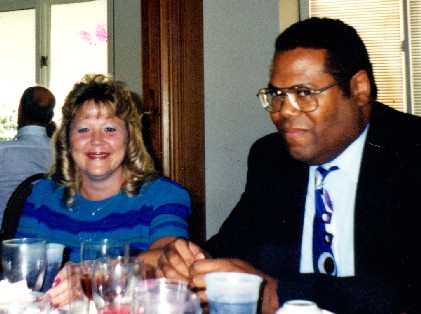5 Reasons Why Being A Leader Is A Good Thing
Posted by Mitch Mitchell on Jan 12, 2022
I'm always saying there are a lot of bad leaders in the world, and almost every day I have it proven to me. Yet, I think that being in leadership is a great thing, and wish more people were ready to embrace it and use it to their advantage and for the benefit of others. Too many want to run away from the responsibility, but I was always ready to embrace it. Why? I have 5 reasons, and here they are:
 via Compfight |
1. You're in the know more often than not.
Sometimes you're in the know because you're at a level where you might have to help make some decisions. Maybe you're in the know because you're the one putting things into action. In any case, it's rare that you're shocked or surprised by anything someone else comes up with.
2. You have the ability to make changes.
True, some people are scared of change, but if you're not one of those people being on the front line of change means you're ready to make a difference in both the business and the lives of others. If those changes are positive then it's all good, but if those changes have to be negative you'll have the opportunity to figure out how to deliver bad news in a kind way.
3. Your "work" changes.
If anyone who's a leader says their job is boring, they're not doing anything positive. I wasn't all that crazy about going to a lot of meetings, but I was thrilled to have every day be something different. Sometimes I created the circumstances, sometimes they came my way. When everything was going well I never rested on laurels, but tried to figure out what we could do better or what problems might be coming that I could head off.
4. Your time isn't being watched as much.
Freedom to come and go is a blessing, even if you're in one of those jobs where you're sometimes working 12 to 16 hour days. Even in a high pressure job you get to decide when you're going to eat, when you're going to take a break, who you're going to talk to, which project is most important... as long as you're getting things done and most of them are positive you'll be left alone.
5. Perks.
Let's face it, the higher you go the more perks you get. Money isn't everything; trust me on this one.
When I was a director I might work 12 to 14 hours one day and then work only 4 to 6 the next. I could take time off and not use my vacation hours if it was only a day. There were no worries if I couldn't make it in because of inclement weather (I worked more than an hour from home) because I'd just dial in and work from home (yes, we had remote work options back in the late 90's). If vendors came in I could take a longer than normal lunch and not have anyone clocking my time because it was work related. If I wanted to go to trade or networking meetings that were related to the job... you get the picture.
With those things said, all of them pretty good ideas, I want to add something to each of them that should help you be a great leader if you're up for the task.
 |
1. Being in the know can lead others to trust you.
Many years ago when I was an employee, I was privy to information on something the facility was going to institute. I couldn't come out and say what it was until it was announced, but it gave me time to decide how I was going to word my advice once it was released.
When everyone had heard what was coming, I got them together in small groups (I had 30 people I was responsible to) and let them know my thoughts against it, and why. It didn't work; overwhelmingly people voted for the proclamation, only to learn a month later how it was going to manifest itself. When people started to complain, and of course only came to me, I told every one of them what I'd tried to warn them about, and now they had to deal with the consequences. Only a few did well with what happened, but from that point on everyone definitely knew I had their best interests at heart and never doubted me again.
2. The ability to make change still has to be earned.
If you don't have something like I mentioned in #1 above occur in your workplace, you'll still need to find ways to make change that employees are willing to do without being forced. Getting people on your side helps make changes go through easier.
I had to do that at the first facility where I was in charge of my overall department. We had to move offsite, and it was something way out of my area of expertise. Since it was something that had to be done, I decided to not only ask my supervisors for help but some of the main line workers to help with their opinions. In the end, even though no one got exactly what they wanted, since it was more of a collaboration than a dictatorship I'd have failed miserably at, almost everyone adapted well to the change and we were intact at a group... until the hospital's next move we had to deal with.
3. The work that now belongs to the leader is a great educational opportunity.
I always thought I'd make a good leader, since I'd been leading in some way my entire life. Still, even once I was a leader I learned that I had to develop many more skills than when I was younger, which included learning more about the job so I could help educate others. It's fine showing those above you how good you are, but when you're a leader you have to be ready to teach others how to do the same job better than they're doing it (if they need teaching) while always learning more so you can keep increasing your knowledge as well as theirs.
4. People might not watch your time, but they're still watching you.
The people above you might not be watching your time, and some of your employees might know what you're doing and give you a pass. But not all employees pay attention to everything you do, which means they might see you doing something that, in their eyes, is wasting time instead of being work related. Many people take their cues from those they report to, so it's always wise to keep that in mind, even if you still need to do what you've been doing.
5. Perks are nice, but don't flaunt them.
I went 14 years and multiple jobs before I ever took a week of vacation off, and that was after I got married and went on my honeymoon. It wasn't until I reached 16 years when I started taking time off, initially for family reasons and then because I wanted some relaxation time. What was funny is that my employees encouraged me to take time off, which was odd because it was conversion year (1999, when most businesses were changing computer systems because we all thought our current systems were going to crash on 1/1/2000). Knowing that my employees knew I deserved to take a rest was one of the best gifts I could have even been given.
Leadership can be a scary proposition. It's risky because leaders are more apt to lose their jobs because it's easier getting rid of one person than a bunch of people (unless it's cost effective) at a time. But no one grows in any career or venue without taking some risks; trust me, it's worth it!
Does this make you think of being a leader in a different way?

